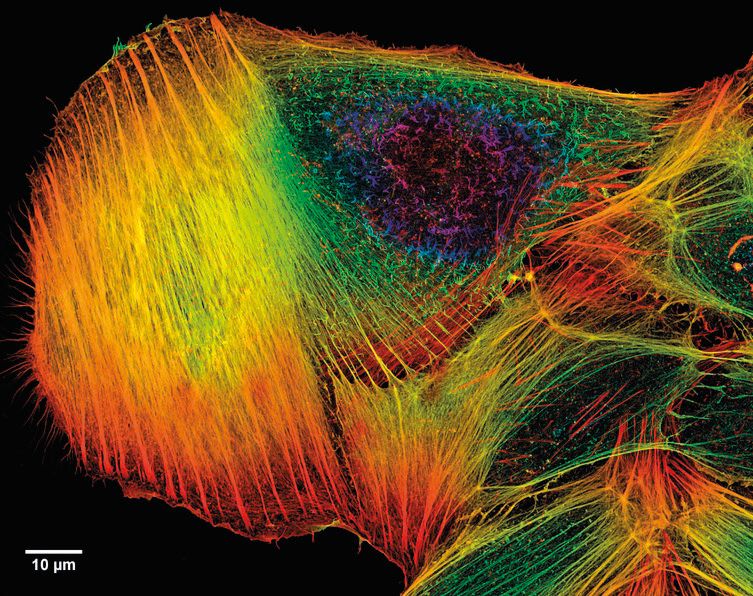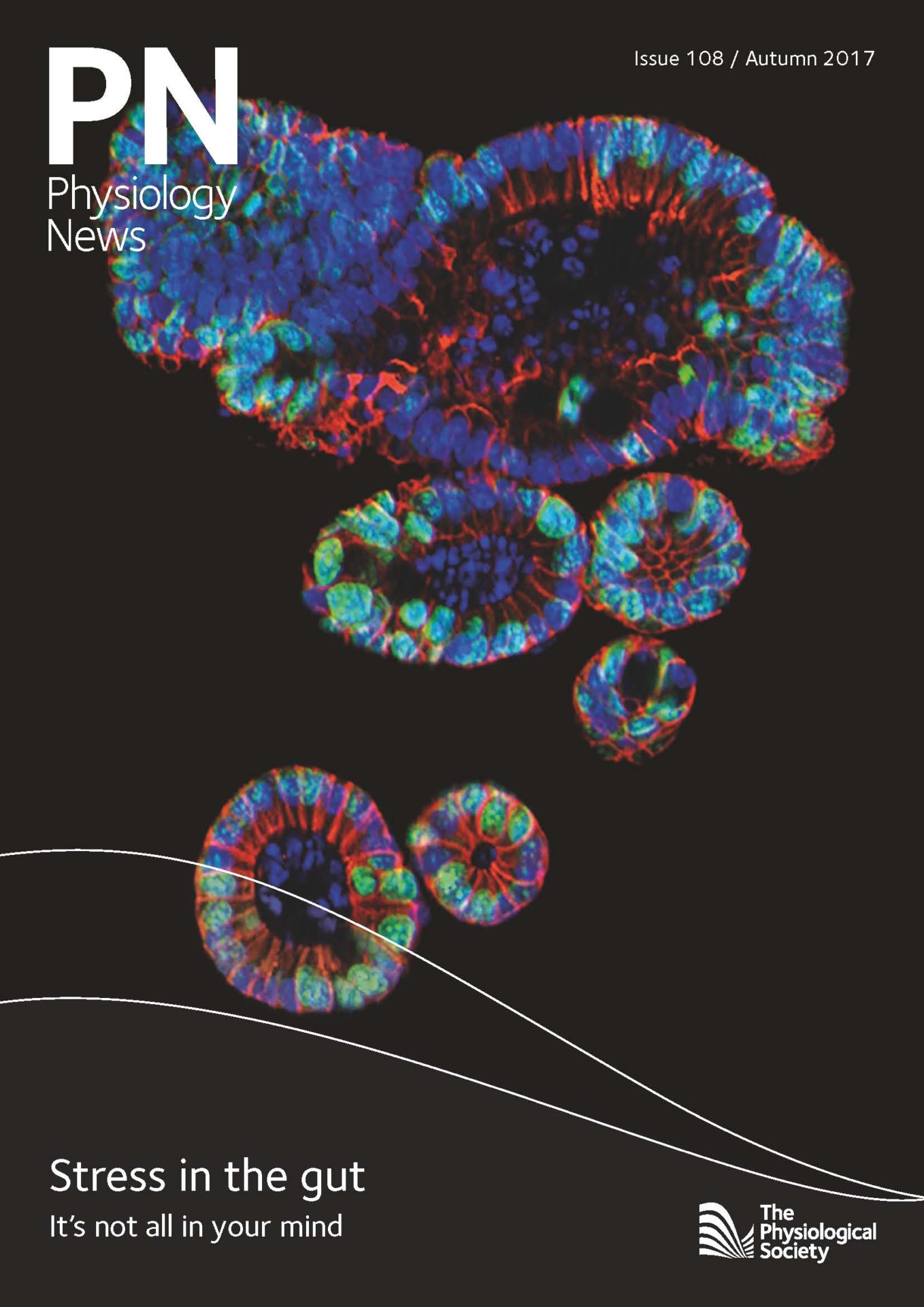
Physiology News Magazine
Wikipedia Editathon
Update the world’s knowledge of physiology and The Society this October
News and Views
Wikipedia Editathon
Update the world’s knowledge of physiology and The Society this October
News and Views
Andy Mabbett
https://doi.org/10.36866/pn.108.16
Throughout 2017, The Physiological Society has been working with Wikimedian-in-Residence Andy Mabbett to improve the biographies of notable physiologists on Wikipedia. Find out more about how you can get involved, and our upcoming October Wikipedia Edit-a-thon.
Hello, who are you?
Hello, I’m Andy Mabbett, and I am The Physiological Society’s Wikimedian in Residence.

What’s a Wikimedian?
A person who contributes to one of the Wikimedia projects – of which Wikipedia is by far the biggest and best known.
What does ‘in residence’ mean?
I am like an artist in residence, only I can’t paint or draw to save my life. I can, though, work alongside (virtually, most of the time, in this case) The Society’s staff and members, to help the organisation to understand Wikipedia and its sister projects, to work with the communities who build and maintain them, and to advise on which parts of The Society’s work and resources can be used to transfer knowledge to them, to support the Wikimedia ethos of making ‘a world in which every single person on the planet is given free access to the sum of all human knowledge’.
Can you tell us a bit more about Wikimedia and it’s community?
Well, that’s going to be a long answer. You might want to get yourself a cup of tea…
Since its inception in 2001, Wikipedia has grown to be the world’s largest volunteer-led project, and its biggest on-line repository of knowledge. All the content (apart from a small proportion of its images) are freely available for use and reuse. Even if you don’t know it, you use Wikipedia frequently – its content informs and is included in Google search results, the answers Siri, Alexa, and similar products give you, and on third party websites as big as the BBC’s.
And its not just in English. At the time of writing, there are 299 Wikipedias (the number is growing, slowly) in different languages, some large (French, German, Russian, and so on), some small (Cornish, Punjabi), and some in endangered languages you’ve probably never heard of. The Welsh Wikipedia is reportedly the world’s largest website in that language. Between them, these Wikipedias have over 45 million articles.
Wikipedia’s topics cover everything from bhangra to brain surgery (and every other aspect of science), and from beer to biographies – including, of course, biographies of influential physicians and physiological scientists.
All these Wikipedias are hosted by a United States non-profit organisation called the Wikimedia Foundation. They administer computer hardware and connectivity of mind-boggling complexity, and collect and disperse funds raised through donations (if you have already given: thank you!) – Wikipedia has no advertising. The content, though, is supplied and maintained by people who write and edit content, take pictures, liaise with museums, learned societies, and other bodies, write software, and deal with administrative matters. These people collectively, are the ‘Wikimedia Community’.
But it’s not just Wikipedia that the Wikimedia Foundation and Community give to the world. Most of the images, video, and audio files, for instance – over 40 million of them, in fact – are gathered on a single site called Wikimedia Commons from where the other projects can include them on their pages – but anyone else can use them too, for free, just like Wikipedia’s text, under what we call an ‘open’ licence.
Then there’s the newest, fastest growing project, Wikidata, which is a repository of linked open data – a huge database of statements about the entities that Wikipedia writes about, and more, which can be displayed on Wikipedia pages, or accessed by any computer programme, for use in apps, on websites, or to answer complex queries. Want a list of all the cites in the world with female mayors, ranked by size of population, or displayed on a map? A few lines of query code can give you that, bang-up-to-date, in under a second.
There’s Wikisource, a repository for out-of-copyright and openly licensed texts, whether that’s a work by Chaucer, a 200-year-old poem in Indonesian, or a newly published open-access scientific paper.
Add to this Wikiversity (learning modules), Wikiquote (notable quotations), Wikibooks (ebooks), Wiktionary (multi-lingual dictionary and thesaurus), Wikivoyage (travel guide), and more, all with openly licensed content, and you have a vast, multi-lingual, collection of interesting, educational, historic, and useful knowledge.

How can The Physiological Society and its members contribute?
That collection is far from complete. The Wikimedia movement relies on volunteers to find the gaps and fill them, and to improve and update the existing articles. That is where members of The Physiological Society come in. They can, of course, write articles about their favourite films, update those on the sports teams they support, or add details of the features of their home towns. But the maximum impact comes when people contribute their specialist knowledge, whether that means improving articles on drugs, surgical techniques, or how the body works, or knowing who the influential physiologists of the past are whose biographies are needed to complete the stories about the discoveries and innovations for which they were responsible.
Some Society members will be involved in higher education, and a great deal of work has been done to help people like them to use Wikipedia in their teaching. For example, last summer I taught a Wikipedia course for PhD students at the Politecnico di Milano (the Polytechnic University of Milan), who were studying a variety of science-related topics, as part of a cross-disciplinary programme. The students wrote articles related to their studies, which were marked by academics from the university, just as an essay or dissertation would be assessed. The event was so successful that it is being re-run in 2018. Feedback from academics involved in a similar course for MSc students on a part-time, three-year programme at the University of Birmingham came with a request to change from teaching Wikipedia editing in year three to doing so early in year one.
Why? Because once the students knew how to add citations to Wikipedia, the referencing of their academic essays improved markedly! As part of my work with The Society, I have been adding to Wikipedia (that is, the Wikipedia in English) lists of all the people who have been honoured with one of The Society’s awards. I have listed them all on the article about The Society, which shows those who have an article in Wikipedia as blue links, and those where no such page exists as a red link. I will be working with The Society and its members on turning as many as possible of those red links into blue ones.
We’ll be working on that, and on improving other articles, at an event on Friday, 13 October. At this ‘editathon’, assistance in editing Wikipedia and Wikidata will be available for people who have never done so before. There will be access to resources from The Society’s archives, refreshments will be served, and people will be able to contribute in a supportive, friendly environment. Booking is essential, and participants will need to bring a laptop that can use the venue’s Wi-Fi.
But people who do not want to write Wikipedia articles can also contribute in other ways. Copy editing, fact checking, and adding citations all help. There is also a need for photographs to illustrate articles. All the Wikipedias, in different languages, share images (and video and audio recordings) which as noted above are hosted on Wikimedia Commons. Commons only accepts files that are under an ‘open’ licence, allowing anyone to reuse them, and requiring no more from them than they give due credit (‘attribution’) to the copyright holder. Perhaps you can take a picture of the building where you work, or the equipment you use? Take a look at what’s already on Commons to get a flavour for what’s included. Or maybe your employer has an image bank which is gathering dust (or whatever it is that digital archives gather) and could be persuaded to share those. They could be scientific images of microscope slides or patients’ visible symptoms (duly anonymised and with their permission, of course), or portraits of notable people, or they could illustrate types of equipment or procedures. Zeiss microscopes did this and you can see their superb images in Commons. Do not forget, too, that you can equally use images from Commons in your own work.
Or perhaps you’d be more at home transcribing scans of old documents for Wikisource? It’s a nice, light task that can fill an odd coffee break or lunch hour, and as with Wikipedia, expert knowledge is sometimes needed, for example to understand an only partially readable drug name or other scientific term.
Whichever way you find to contribute, your input will be gratefully welcomed, and you too will be helping to build ‘a world in which every single person on the planet is given free access to the sum of all human knowledge’.
Register now to join Andy and other Society Members this October at Hodgkin Huxley House for a training and editing event. The event will focus on physiology-related topics, including both scientific and non-scientific content (the latter including biographies). We will work on Wikipedia, but also sister projects including Wikimedia Commons, Wikidata, Wikisource.
Participants will be able to access some resource material and staff will be able to provide access to papers from The Society’s journals. If there is a biography of a notable physiologist or topic area you are keen to work on please bring reference and source material relating to your subject of choice.
We will also hear talks on the relationship between academics and Wikipedia from Duncan Hall, and about the efforts made at the University of Edinburgh to increase the profile on Wikipedia of the ‘Edinburgh Seven’, the first group of matriculated undergraduate female students at any British university, from Melissa Highton. www.physoc.org/physiologyonwikipedia/ physiology-wikipedia
